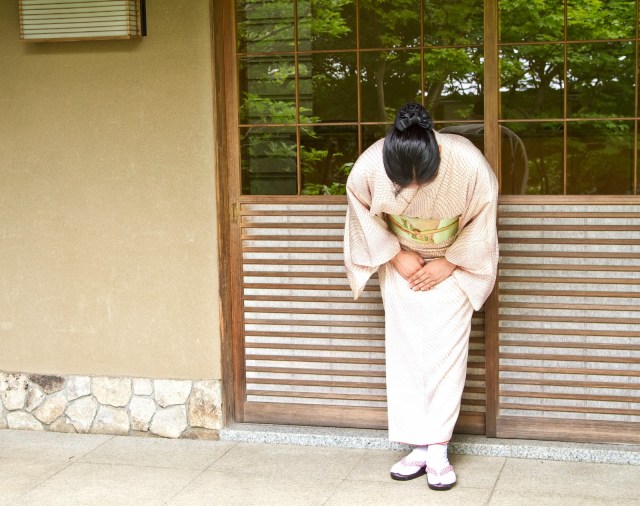
Serving diners since the days of the samurai and once loved by famous writers like Natsume Soseki, this long-standing business will soon be no more.
It’s been one year and two days since coronavirus was first detected in Japan on 16 January 2020. Since then, people around the country have ridden the rollercoaster of the worst pandemic of our times, screaming in their hearts all the way, with no end in sight as Tokyo and a number of other prefectures buckle down under a second state of emergency amidst a third wave, with record numbers now infected.
The year has hit everyone hard, and with diners refraining from eating out like they used to, people working in the restaurant industry have been badly affected, forcing many to shut up shop. One such business made news recently, as the drop in local and international customers has now spelled the end for Kawajin, a restaurant in Tokyo’s historic Shibamata district, which has been serving diners for 231 years.
▼ Kawajin
Founded in 1790, during the Edo period (1603-1868) when samurai clans were scattered around Japan and the country was ruled by feudal lords, Kawajin boasts a long list of famous diners. Japanese writer Natsume Soseki was one of them, even mentioning the restaurant by name in his 1912 novel, To the Spring Equinox, as did fellow fan Seicho Matsumoto in his 1962 novel Kaze no Shisen (The Wind’s Gaze).
It even served as the wedding banquet location for a scene in Otoko wa Tsurai Yo–a popular Japanese film series commonly known as “Tora-san” after the name of its leading character–which ran from 1969-1995. With such a long and revered history, the closure came as sad news for many when it was announced.
▼ Out of all the restaurants that have sadly had to close due to the pandemic, Kawajin is the oldest.
創業231年の歴史に幕😭34年ぶりに来たよ #川甚 pic.twitter.com/0HDmKptJxw
— ナカジマ(トップブリーダー推奨) (@JETCHOP) January 16, 2021
Famous for freshwater fish cuisine, including carp and eel dishes like kabayaki, butterflied eel with a sweet sauce served on a bed of rice in a rectangular box, Kawajin’s closure has some people expressing their concerns over the future of Japanese food culture. Not many restaurants can boast such a long history of expertise in serving up these freshwater delicacies, which came into popularity during the Edo period.
▼ Kawajin, serving eel and carp since the 18th century.
https://twitter.com/M7577B/status/1350394345518579714葛飾柴又の川魚料理屋・川甚の閉店については今朝の某新聞一面にも大きく出ていたな。江戸川の調査を取材したりした際に何度か寄ったけど大型バスで来る観光客が多かったようなので今の状況なら仕方ないだろう。もっといろいろ食べておけばよかった。ちなみに仕事中の昼酒ではありません。 pic.twitter.com/OxxFmWac9w
— 工房うむき 「春の両爬まつり」ありがとうございました (@kobo_umuki) January 17, 2021
However, the eighth-generation president of the restaurant, Kazuki Amamiya, says he had no choice but to close the restaurant due to the drop in customers brought about by the pandemic. The 69-year-old said he regretted the closure, but even after cutting down on utility costs and making full use of government support entitlements, they were at their absolute limit and nothing could help them out of their dire financial situation.
▼ Amamiya (top) appeared in the newspaper, above a photo of the restaurant taken in 1905.
流石!#東京新聞#川甚 pic.twitter.com/BqI0WaKWrs
— ruu (@ruukenta) January 17, 2021
Speaking to the media, Amamiya said:
“It’s a pity that I couldn’t keep the baton going from the previous generation; it ended with my generation.”
He went on to say he has no grudge against the coronavirus, and though he regrets having to close, he doesn’t regret the decision as it was one that had to be made. However, many others were filled with remorse for him, leaving comments online like:
“Whaaa? I can’t believe this!”
“Such a shame–I always wanted to go there!”
“So sad to hear even Kawajin couldn’t survive this tough period.”
“Centuries of history now gone forever.”
“As a lover of Shibamata, I’m so sad to hear this.”
“Without tourists and tour groups, it’s tough for businesses like this to survive.”
Kawajin has been popular not only with tourists but also locals, who used to hold big events like weddings and memorial services at the restaurant. However, the coronavirus pandemic has caused local customers to decrease as well, due to advisories from the Tokyo Metropolitan Government to stay home as much as possible.
The historic restaurant will close its doors for good on 31 January, sadly joining Fujimisou, a longstanding hot spring resort ryokan in Aichi Prefecture, as two of the country’s oldest coronavirus business casualties.
Source: Kawajin, Tokyo Shimbun via Hachima Kikou
Top image: Pakutaso
● Want to hear about SoraNews24’s latest articles as soon as they’re published? Follow us on Facebook and Twitter!

 Iconic Kyoto Tower bathhouse closes due to coronavirus
Iconic Kyoto Tower bathhouse closes due to coronavirus Has Shinjuku’s Robot Restaurant closed permanently?
Has Shinjuku’s Robot Restaurant closed permanently? Studio Ghibli Museum closes due to coronavirus fears
Studio Ghibli Museum closes due to coronavirus fears Oldest ryokan at Japanese onsen resort goes bankrupt due to coronavirus
Oldest ryokan at Japanese onsen resort goes bankrupt due to coronavirus 140-year-old sukiyaki restaurant in Tokyo closing due to coronavirus pandemic
140-year-old sukiyaki restaurant in Tokyo closing due to coronavirus pandemic Starbucks Japan releases first-ever Hinamatsuri Girls’ Day Frappuccino
Starbucks Japan releases first-ever Hinamatsuri Girls’ Day Frappuccino Drift ice in Japan is a disappearing winter miracle you need to see now
Drift ice in Japan is a disappearing winter miracle you need to see now Japan’s craziest burger chain takes menchi katsu to new extreme levels
Japan’s craziest burger chain takes menchi katsu to new extreme levels Eevee returns to Japan’s famous Tokyo Banana, bundled with a cute tote bag
Eevee returns to Japan’s famous Tokyo Banana, bundled with a cute tote bag Man arrested in Japan after leaving car in coin parking lot for six years, racking up three-million-yen bill
Man arrested in Japan after leaving car in coin parking lot for six years, racking up three-million-yen bill You’ll Never Guess What’s for Breakfast at McDonald’s in Turkey
You’ll Never Guess What’s for Breakfast at McDonald’s in Turkey Boy entering all-girls high school creates real-life harem anime
Boy entering all-girls high school creates real-life harem anime The etiquette rules for visiting Shinto shrines in Japan
The etiquette rules for visiting Shinto shrines in Japan “Denki Anma”: The Japanese traditional torment that you’ll be glad stays in Japan
“Denki Anma”: The Japanese traditional torment that you’ll be glad stays in Japan Totoro gamaguchi pouches will hold whatever you want them to, but already captured our heart
Totoro gamaguchi pouches will hold whatever you want them to, but already captured our heart Highest Starbucks in Japan set to open this spring in the Tokyo sky
Highest Starbucks in Japan set to open this spring in the Tokyo sky The 10 most annoying things foreign tourists do on Japanese trains, according to locals
The 10 most annoying things foreign tourists do on Japanese trains, according to locals Tokyo Skytree turns pink for the cherry blossom season
Tokyo Skytree turns pink for the cherry blossom season Yakuzen ramen restaurant in Tokyo is very different to a yakuza ramen restaurant
Yakuzen ramen restaurant in Tokyo is very different to a yakuza ramen restaurant Shibuya Station’s Hachiko Gate and Yamanote Line stairway locations change next month
Shibuya Station’s Hachiko Gate and Yamanote Line stairway locations change next month Starbucks Japan releases new sakura goods and drinkware for cherry blossom season 2026
Starbucks Japan releases new sakura goods and drinkware for cherry blossom season 2026 Starbucks Japan adds new sakura Frappuccino and cherry blossom drinks to the menu
Starbucks Japan adds new sakura Frappuccino and cherry blossom drinks to the menu Japan Extreme Budget Travel! A trip from Tokyo to Izumo for just 30,000 yen [Part 1]
Japan Extreme Budget Travel! A trip from Tokyo to Izumo for just 30,000 yen [Part 1] Japan’s new “Cunte” contact lenses aren’t pronounced like you’re probably thinking they are
Japan’s new “Cunte” contact lenses aren’t pronounced like you’re probably thinking they are Japan’s newest Shinkansen has no seats…or passengers [Video]
Japan’s newest Shinkansen has no seats…or passengers [Video] Foreigners accounting for over 80 percent of off-course skiers needing rescue in Japan’s Hokkaido
Foreigners accounting for over 80 percent of off-course skiers needing rescue in Japan’s Hokkaido Super-salty pizza sends six kids to the hospital in Japan, linguistics blamed
Super-salty pizza sends six kids to the hospital in Japan, linguistics blamed Starbucks Japan unveils new sakura Frappuccino for cherry blossom season 2026
Starbucks Japan unveils new sakura Frappuccino for cherry blossom season 2026 Foreign tourists in Japan will get free Shinkansen tickets to promote regional tourism
Foreign tourists in Japan will get free Shinkansen tickets to promote regional tourism Take a trip to Japan’s Dododo Land, the most irritating place on Earth
Take a trip to Japan’s Dododo Land, the most irritating place on Earth Naruto and Converse team up for new line of shinobi sneakers[Photos]
Naruto and Converse team up for new line of shinobi sneakers[Photos] Is China’s don’t-go-to-Japan warning affecting the lines at a popular Tokyo gyukatsu restaurant?
Is China’s don’t-go-to-Japan warning affecting the lines at a popular Tokyo gyukatsu restaurant? Survey asks foreign tourists what bothered them in Japan, more than half gave same answer
Survey asks foreign tourists what bothered them in Japan, more than half gave same answer Japan’s human washing machines will go on sale to general public, demos to be held in Tokyo
Japan’s human washing machines will go on sale to general public, demos to be held in Tokyo Starbucks Japan releases new drinkware and goods for Valentine’s Day
Starbucks Japan releases new drinkware and goods for Valentine’s Day We deeply regret going into this tunnel on our walk in the mountains of Japan
We deeply regret going into this tunnel on our walk in the mountains of Japan Studio Ghibli releases Kodama forest spirits from Princess Mononoke to light up your home
Studio Ghibli releases Kodama forest spirits from Princess Mononoke to light up your home Major Japanese hotel chain says reservations via overseas booking sites may not be valid
Major Japanese hotel chain says reservations via overseas booking sites may not be valid Put sesame oil in your coffee? Japanese maker says it’s the best way to start your day【Taste test】
Put sesame oil in your coffee? Japanese maker says it’s the best way to start your day【Taste test】 No more using real katana for tourism activities, Japan’s National Police Agency says
No more using real katana for tourism activities, Japan’s National Police Agency says Popular tourist spots in Kyoto look like a ghost town due to coronavirus
Popular tourist spots in Kyoto look like a ghost town due to coronavirus Japanese city cuts 800,000 tulips after people refuse to stay away despite coronavirus risks
Japanese city cuts 800,000 tulips after people refuse to stay away despite coronavirus risks Several McDonald’s branches closing across Japan due to COVID-19 infections
Several McDonald’s branches closing across Japan due to COVID-19 infections Internet cafes in Tokyo now closed due to coronavirus, but what about those who live in them?
Internet cafes in Tokyo now closed due to coronavirus, but what about those who live in them? Nara deer leave park, head to station for food as tourist numbers tumble due to coronavirus
Nara deer leave park, head to station for food as tourist numbers tumble due to coronavirus What pandemic? People in Japan crowd Ikea store, ignore requests to stay home during Golden Week
What pandemic? People in Japan crowd Ikea store, ignore requests to stay home during Golden Week Japanese PM asks schools around Japan to close as coronavirus cases rise
Japanese PM asks schools around Japan to close as coronavirus cases rise Tokyo prison restaurant The Lockup closes its doors for good
Tokyo prison restaurant The Lockup closes its doors for good Japanese revolving sushi restaurant chain stops revolving during coronavirus outbreak
Japanese revolving sushi restaurant chain stops revolving during coronavirus outbreak Osaka icon loses legs, restaurant says famous crab is exhausted
Osaka icon loses legs, restaurant says famous crab is exhausted